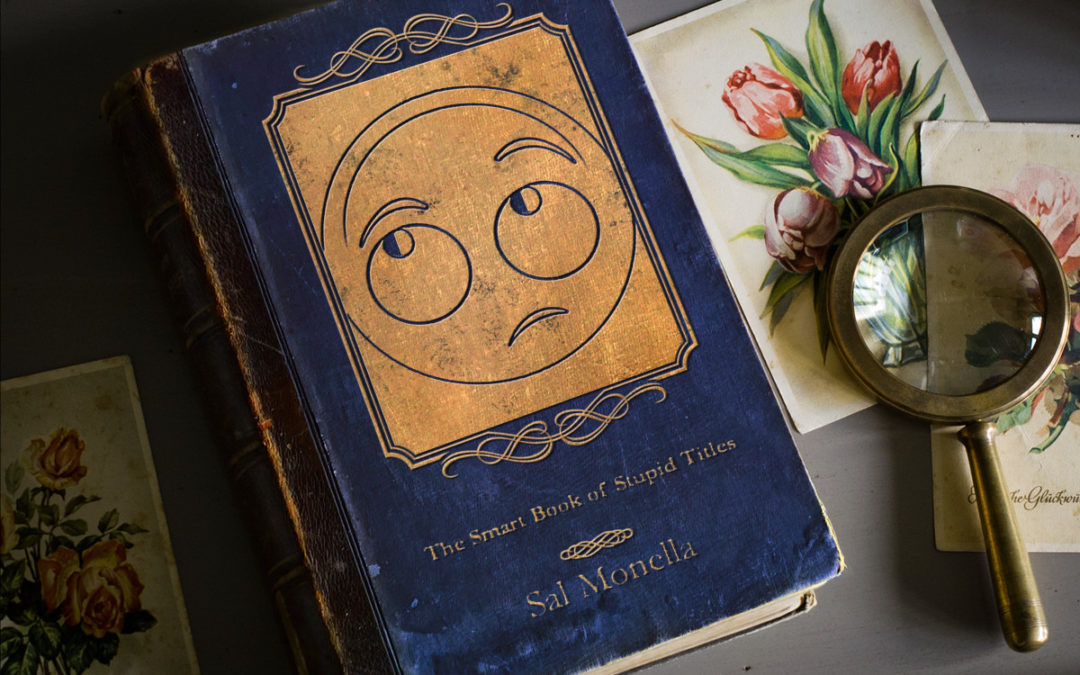We came across a post the other day — The 25 Most Absurd Job Titles In Tech — that dismayed and disappointed us. (We’ll leave it up to you, dear readers, to inflict that post upon yourselves.) As cynical as we are, we still hold out ever-diminishing quotients of hope for semblances of sanity, aspirations for meaning, a modicum of humility, and respect for language. But because we are, after all, realists and empiricists, the contents of the post didn’t really surprise us all that much. (We’re Fatalists wearing rose-colored glasses.)
You wouldn’t have had to be working more than a few minutes in any job or company to know tech hasn’t cornered the market on absurd titles. We’ve seen some beauties in our myriad meanderings around the proverbial block.
So, out of the goodness of our ever-charitable hearts, we’ve chosen to share a handful of them here with our assurances that we didn’t make a single one of them up. We’re not that creative … or cruel. Here we go:
- Chief Innovation Officer. The game was pretty much over and the pooch officially screwed when we became superficial and uncritical enough to change the meaning of CIO from Chief Information Officer to Chief Innovation Officer. Everything after that was insult added to injury.
- Chief Disruption Officer. The position connoted by this title is the rough equivalent of Chief Innovation Officer because, at this point in our linguistic devolution, neither innovation nor disruption means anything. Weren’t things ludicrous enough when the CDO was the Chief Digital Officer?
- Product Visionary. If you have this title, you may as well put a sign on your back that says, “I’m the boss’s pal. I’m bulletproof. I don’t do or contribute anything to this operation. But I collect a paycheck, nevertheless.” And you’d better hope the boss doesn’t get replaced.
- Thought Leader. If you have the title of thought leader, chances are (A) you assigned it to yourself and (B) you were, at some point, an expert, well on your way to becoming a guru. If you haven’t yet made the transition, you’ll no doubt become an influencer any day now. Be patient.
- Millennial Expert. We don’t know if the abbreviation, CLM (career-limiting maneuver), is still in use. But in our younger years, we heard frequent references to it and saw even more frequent manifestations of it. Unless Millennial Experts are blood relatives of Peter Pan, have discovered the Fountain of Youth for themselves, and/or have found a way to freeze an entire generation in time, Millennial Experts will have very short shelf-lives. We can only hope they plan accordingly.
- Customer Experience Leader. Every person, in every job, in every company is a customer experience leader at the point at which that person interacts with, makes something to be used by, or performs some service for the customer. When a company (bureaucracy) grows to the point at which it thinks it needs a Customer Experience Leader — one person to communicate the vision to which all employees should already be subscribed and adhering — it’s too late. And it’s been too late for longer than anyone in the company realizes.
Good Grief
We know we live in the ostensible Age of Specialization. But this kind of titular vapidity is more suggestive of the Age of Trivialization. If everything’s important, nothing’s important. The mind can’t comprehend and Nature will neither permit nor abide the existence of everything being present at the same time, at the same level of relevance, priority, or materiality. It’s just not possible.
If we’re responsible for fostering constructive change in our organizations — and if we really have to be some variation of CIO (or CDO) — can’t we be Corporate Improvement Officers? If we’re responsible for a product roadmap that extends beyond lunch, do we really have to be Product Visionaries? Can’t we be CDs (conscientious developers)? If we understand the inclinations of a particular age group — even if we’re convinced those inclinations won’t change with age and the acquisition of knowledge and wisdom — do we have to be Millennial Experts? Can’t we just be awake?
And if we ever get the impression we’ll be singlehandedly responsible for leading customer experiences, we should be savvy enough to run like hell. It’s not gonna happen, kids. Customer experiences are precipitated from the top down. They’re the products of corporate vision, deliberate communication, operational philosophy, and contagious culture. They’re not deliverables to be dug out of middle management somewhere.
If we can restore a little sanity, a little meaning, a little humility, and a little respect for language, titles will take care of themselves.

